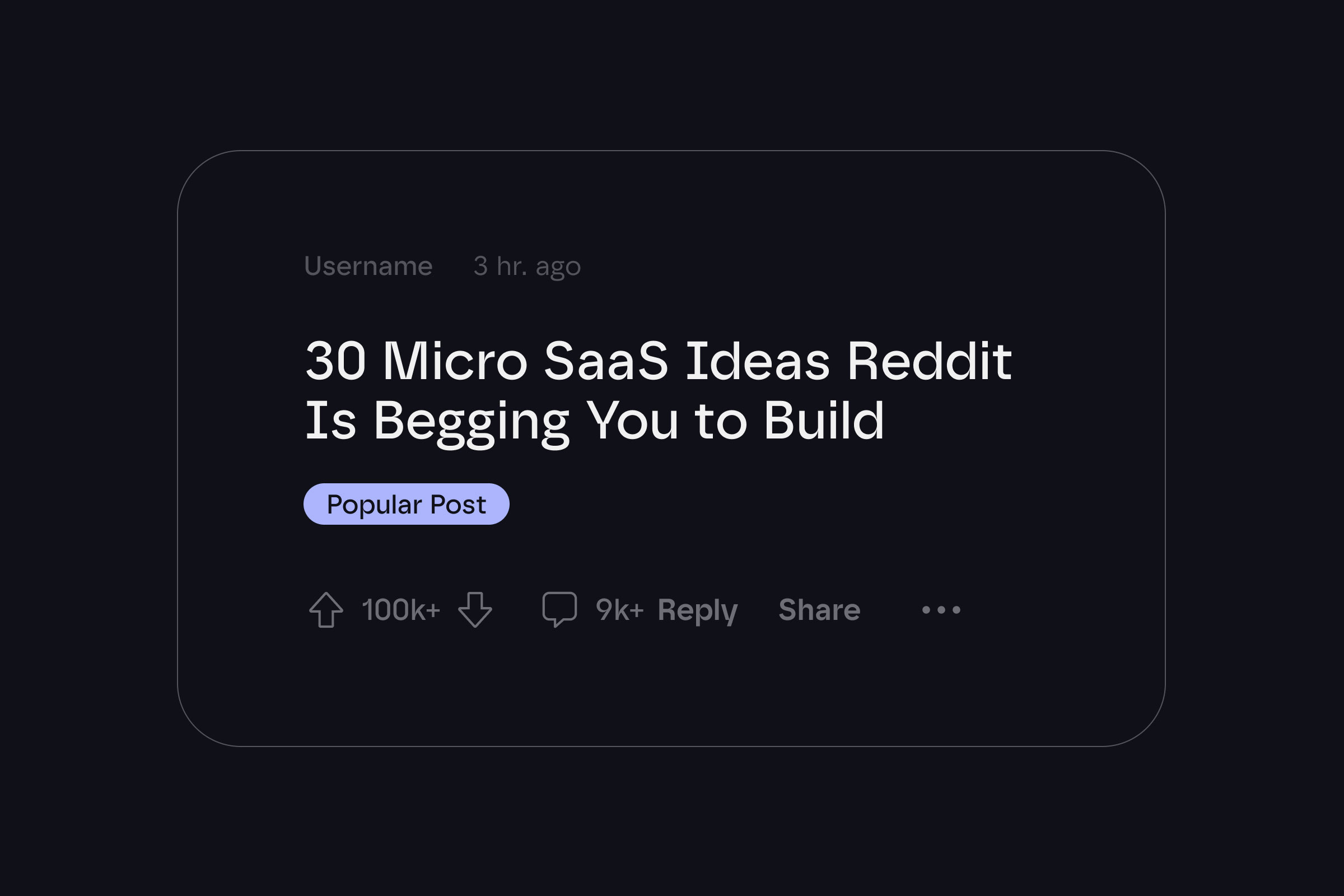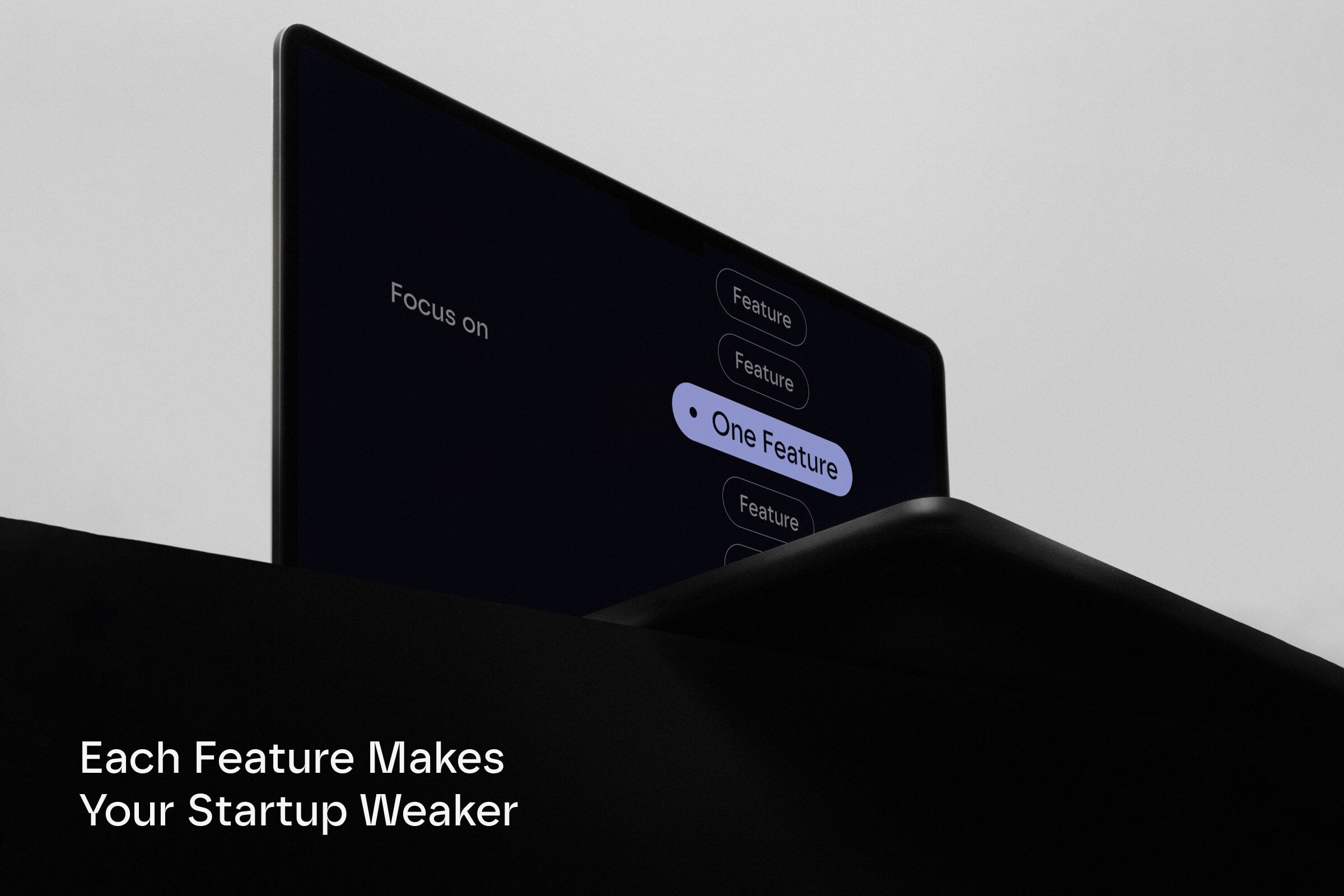"We love the product, but..."
That phrase haunts every founder. You've heard it. Your friends have heard it. It's the polite way investors say no without saying why.
Only 18% of first-time founders successfully raise capital today. The rules have changed dramatically.
We got tired of watching great founders get crushed by this. So we interviewed 100 of them.
We wanted to know: What separates the funded from the forgotten?
The answer shocked us. It had nothing to do with product quality. Or team credentials. Or even market size.
It was something much simpler. You'll explore it soon.
Yet you're not the first founder caught in this trap.
It’s common to see founders build MVPs that users love but investors ignore.
The problem? Most agencies build for users only. We build for both users AND funding success.
Our MVP process generates the exact metrics investors want to see. User engagement + revenue signals + growth data.
Results: 78% of our clients raise funding within 6 months.
Don't waste months building features investors don't care about.
Book a strategy call and build an MVP that actually gets funded.
Can You Really Raise Money Without an MVP?
Short answer: Yes, but the bar is brutal.
Only 46% of VCs will even consider pre-revenue investments at the pre-seed stage. Compare that to nearly universal acceptance just three years ago.
The founders who crack this code follow a specific playbook:
Celine Halioua raised $5.1M for Loyal with zero MVP. No team, no discovered science—just a deck.
But here's the catch. She systematically targeted 157 investors. She conducted 65 meetings in 1.5 months. And she had exceptional founder-market fit in longevity research.
Marc Lore raised $140M for Jet.com pre-MVP, but he'd already built and sold multiple companies.
Pattern recognition: exceptional founder credentials or extraordinary market timing.
What Actually Gets You Pre-MVP Funding
Forget the motivational posts about "believing in your vision." Here's what investors actually evaluate:
Team credibility is everything. 70% of investors rank the founding team as their #1 criterion. You need domain expertise, previous startup experience, or deep technical competence. No exceptions.
Market validation, not product validation. Investors want proof that customers desperately need your solution. Think 50+ customer interviews, letters of intent, or pre-purchase commitments.
David Cremin from DFJ Frontier puts it directly: "I fund a startup when I see the kind of passion from founders that enables forward momentum."
Clear path to $100M+ revenue. With elevated valuations (median pre-seed now $5.7M), investors need confidence in a massive market opportunity.
Building an MVP That Actually Attracts Money
Most founders build MVPs backwards. They focus on impressing users instead of generating investor-relevant data.
Design for investment metrics from day one. Your MVP should answer investor questions: How deep is user engagement? Are there revenue signals? What indicates product-market fit?
Skip the feature kitchen sink. Focus on complete workflows for your core use case. Better to nail one thing perfectly than half-deliver on five features.
Timeline efficiency matters. Investors expect MVP development in 1-3 months, not 6+. Start with landing page MVPs to test demand, then progress to functional prototypes based on actual feedback.
What Investors Want After Your MVP is "Done"
The research shows investors now ask "Series A-type questions at the seed stage." Your post-MVP checklist:
Revenue generation is table stakes. While some VCs invest pre-revenue, competitive advantage goes to startups showing $150K-$500K ARR with 20%+ monthly growth.
Document product-market fit signals. Customer retention data, organic referrals, engagement metrics that suggest sustainable demand. User testimonials and case studies are now essential fundraising materials.
Clean unit economics. Customer acquisition costs, lifetime value ratios, paths to profitability. As Lucas Perlman from StandUp Ventures puts it: "Show you don't need to wait for capital to make progress."
The Angel Investor Reality Check
Angels remain your best bet for pre-MVP or early-stage funding. They typically invest $25K-$500K based on team quality and market insight rather than traction.
But here's the relationship game: Never ask for money in first meetings. Focus on building genuine relationships 6+ months before formal funding requests.
Strategic value often matters more than check size. Choose angels who provide domain expertise, industry connections, and strategic guidance.
The Tactical Angel Approach
Build systematic targeting. Research 50-120 qualified angels with relevant industry experience. Prioritize warm introductions through their recent portfolio founders.
Lead with value. Share market insights, provide industry expertise, facilitate valuable introductions. Build reciprocal relationships before requesting investment.
Geographic arbitrage works. Silicon Valley companies see 66% success rates for $10M+ valuations. Emerging markets like Toronto show 78% valued under $10M. Consider where you're raising strategically.
If You've Got Revenue + MVP: You're in the Driver's Seat
Startups with $500K-$1M ARR and working MVPs get funded more often. They also get better valuations. This combination reduces investor risk substantially.
Your conversion rates improve dramatically. Revenue-generating MVPs get meetings 25% of the time. Pre-revenue startups? Only 10%.
You create competitive dynamics. Multiple funding sources (VCs and angels) improve your negotiating position considerably.
Lead with Growth, Not Features
In every investor conversation, lead with metrics: monthly recurring revenue growth, customer acquisition trends, retention rates. Prepare detailed customer case studies demonstrating value creation.
Focus discussions on scaling pathways. Investors evaluate whether current revenue can reach $10M+ ARR within 24-36 months.
The Fatal Mistakes That Kill Deals
Timing disasters. Never fundraise during July-August or November-December. Extended campaigns beyond 6 weeks signal execution problems.
Wrong investor targeting. Seed companies approaching Series A investors waste 60-80% of outreach efforts.
Unrealistic asks. 95% of founders request inappropriate amounts—either too little (lack of ambition) or too much (poor market understanding).
Generic presentations. Cookie-cutter pitches and buzzword overuse demonstrate poor preparation. Customize every presentation.
Your 2025 Funding Strategy
Phase 1 (Months 1-3): Foundation
- Complete 50+ customer interviews
- Build initial MVP with key validation metrics
- Create basic financial projections
- Establish advisor relationships
Phase 2 (Months 4-6): Validation
- Finalize MVP with investor-relevant data
- Build investor pipeline with warm introduction pathways
- Prepare comprehensive pitch materials and due diligence docs
Phase 3 (Months 7-9): Execution
- Launch high-velocity fundraising (20-30 investor meetings per term sheet)
- Manage pipeline systematically
- Execute competitive closing dynamics
The Bottom Line for 2025
Preparation beats passion. Every time.
Pre-MVP funding? Only for exceptional teams with proven track records.
Post-MVP startups need more traction than before. But they also have better odds of success.
Warm introductions get you funded. 80% success rate versus 5-10% for cold emails. Build relationships with portfolio founders. Connect through industry networks. Get real introductions.
AI companies are eating 37% of all funding. Non-AI startups need stronger proof points.
But here's the thing. Opportunities still exist. You just need to play by the new rules.
Focus on three things:
- Build real relationships before you need money
- Validate your market with actual customers
- Show you can execute consistently
Do this right? Your funding odds jump from 18% to 60%+.
The money follows value. Always has. Always will.












